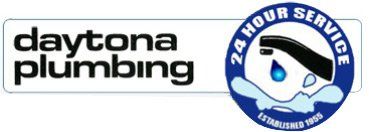What to Do When You Have a Plumbing Emergency
Dealing with a plumbing emergency can be stressful, but knowing the right steps to take can minimize damage and ensure a swift resolution. Here are essential emergency plumbing tips to guide you through the situation.
1. Shut Off the Water Supply
The first and most crucial step in any plumbing emergency is to stop the flow of water. Locate the main water shut-off valve in your home and turn it off. This action will prevent further flooding and reduce potential damage. If the issue is specific to a fixture like a sink or toilet, find the localized shut-off valve, usually located under the sink or behind the toilet.
2. Assess the Situation
After turning off the water, assess the extent of the problem. Check the affected area for signs of damage, such as leaks, bursts, or overflows, to quickly assess the situation. Understanding the severity of the issue will help you determine if you need immediate professional help or if you can manage with temporary fixes.
3. Contain the Damage
To prevent further damage, contain the water as much as possible. Use towels, buckets, or any available containers to catch and absorb the water. If the leak is substantial, you may need to use a wet vacuum to remove excess water. Move any valuable items or furniture away from the affected area to avoid additional damage.
4. Make Temporary Repairs
While waiting for a plumber, you can implement some emergency plumbing tips for temporary repairs. For instance, if a pipe is leaking, wrap it with plumber’s tape or use a pipe repair clamp to control the leak. If a toilet is overflowing, try using a plunger to clear the blockage. These temporary fixes can help mitigate the damage until a professional arrives.
5. Avoid Using Chemical Drain Cleaners
Though it may be tempting, avoid using chemical drain cleaners during an emergency. These chemicals can be harmful, potentially damaging your pipes or worsening the problem. Instead, use a plunger or a drain snake to address clogs. If these methods don’t work, wait for a professional plumber to handle the issue.
6. Document the Damage
It’s important to document the damage for insurance purposes and to give your plumber a clear understanding of the problem. Take photos of the affected area, including any visible damage to pipes, fixtures, or surrounding structures. This documentation can be useful for filing insurance claims or tracking repairs.
7. Contact a Professional Plumber
Once you’ve managed the immediate situation, contact a professional plumber for repairs. Choose a reputable local service known for handling emergencies efficiently. Provide them with detailed information about the problem and any temporary measures you’ve taken to help them address the issue more effectively.
8. Clean Up and Prevent Future Issues
After the repair is completed, thoroughly clean the affected area to prevent mold and mildew growth. Regular maintenance and inspections of your plumbing system can help you avoid future emergencies. Following these emergency plumbing tips can help you keep your system in good condition and reduce the likelihood of future issues.
9. Stay Informed and Prepared
Educate yourself about your home’s plumbing system and emergency procedures. Knowing where your shut-off valves are located and how to perform basic repairs can be invaluable during a crisis. Keeping a list of emergency plumbing tips handy can provide peace of mind and quick guidance in case of unexpected issues.
Handling a plumbing emergency effectively requires swift action and the right knowledge. By following these emergency plumbing tips, you can manage the situation and minimize damage until a professional can take over. For expert plumbing services in Daytona Beach and surrounding areas, call Daytona Plumbing at 386-253-7674. Their experienced team is ready to assist you with all your plumbing needs.






